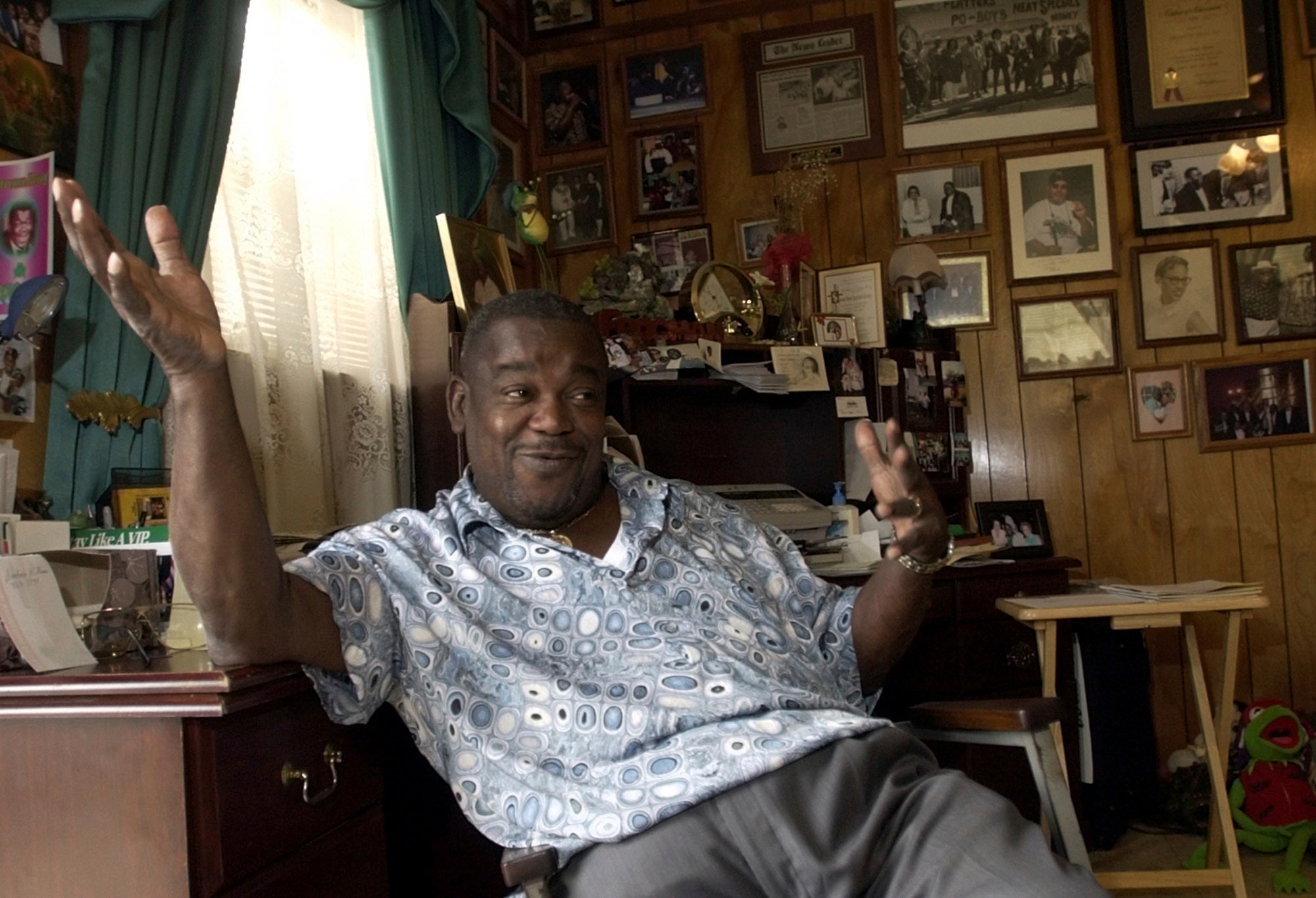Clarence 'Frogman' Henry, the New Orleans R&B singer behind the 1956 hit 'Ain't Got No Home,' dies
New Orleans R&B singer Clarence “Frogman” Henry has died at age 87

Your support helps us to tell the story
From reproductive rights to climate change to Big Tech, The Independent is on the ground when the story is developing. Whether it's investigating the financials of Elon Musk's pro-Trump PAC or producing our latest documentary, 'The A Word', which shines a light on the American women fighting for reproductive rights, we know how important it is to parse out the facts from the messaging.
At such a critical moment in US history, we need reporters on the ground. Your donation allows us to keep sending journalists to speak to both sides of the story.
The Independent is trusted by Americans across the entire political spectrum. And unlike many other quality news outlets, we choose not to lock Americans out of our reporting and analysis with paywalls. We believe quality journalism should be available to everyone, paid for by those who can afford it.
Your support makes all the difference.Clarence “Frogman” Henry, who was one of New Orleans’ best known old-time R&B singers and scored a hit at age 19 with “Ain't Got No Home," has died. He was 87.
Henry died Sunday night, the New Orleans Jazz and Heritage Foundation said on social media. It didn't give the cause of death.
Henry, who had been scheduled to perform at the New Orleans Jazz & Heritage Festival later this month, imitated the voice of a frog in “Ain't Got No Home.” It was a hit in 1956 and later brought Henry renewed fame when it was featured on the “Forrest Gump” and “Mickey Blue Eyes” soundtracks.
He credited disc jockey Poppa Stoppa, whose real name was Clarence Hayman, as coming up with the nickname the “Frogman,” which mimicked Fats Domino's moniker the “Fatman.”
By 1958, Henry’s popularity waned and he took to playing nightclubs on Bourbon Street.
“I thought the sun would shine. I thought my record would always stay out there and stay on the top, but in 1958, the rain came and bring me back to New Orleans,” Henry told The Associated Press in 2003.
But in 1960, a new song, “I Don’t Know Why But I Do” by Cajun songwriter Bobby Charles and arranged by Allen Toussaint, brought Henry renewed success.
With the Bill Black Combo and the Jive Five he opened for the Beatles for 18 dates in 1964 during their first U.S. trip and toured extensively, from Scotland to New Zealand.
In Louisiana, Henry remained popular. He also was one of the few black New Orleans musicians to cross over into Cajun musical circles.
Henry, who was born in New Orleans on March 19, 1937, started playing the piano at 8, taking up lessons his sister had disliked. He worked for his father until he was 15, often for no money.
He played the trombone and piano in his high school band and later joined The Toppers, traveling around southern Louisiana before making it big.
“When I was going to school, I wanted to be Fats Domino, Professor Longhair, and I would wear a wig with two plaits and call myself Professor Longhair,” Henry told the AP. “I like the Fats Domino rhythm, but I play my own chords and my own style.”
Henry's national fame faded but he remained popular in Louisiana. He was a Bourbon Street fixture until 1981, when he retired from the grueling club circuit. But he never gave up music, and continued to be an annual crowd pleaser at the Jazz & Heritage Festival.
Funeral arrangements are pending at the Murray Henderson Funeral Home.